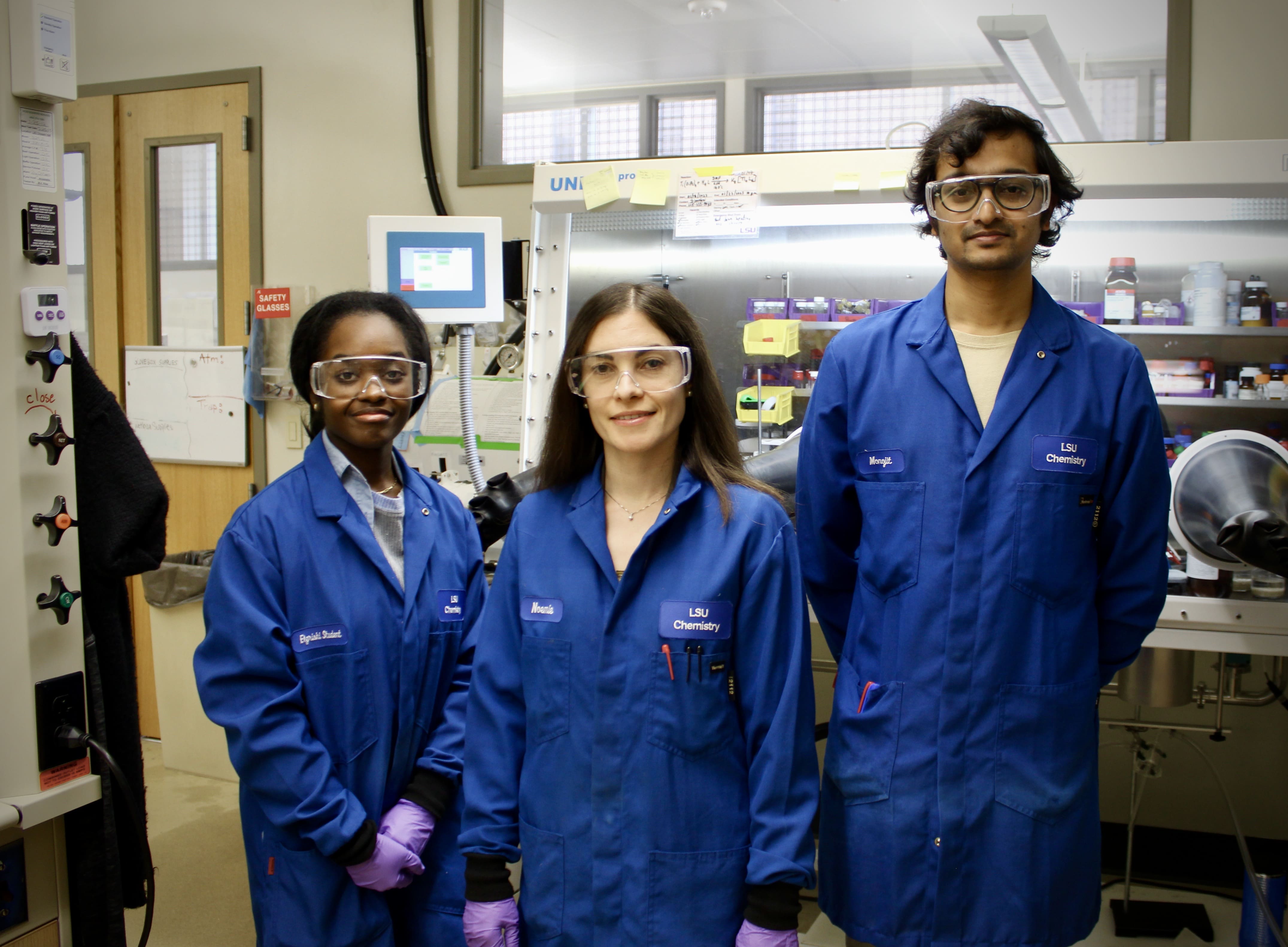LSU professor hopes to unstick 'forever chemicals' from drinking water
January 26, 2023

BATON ROUGE - Recognized for their remarkable ability to repel water and grease, perfluoroalkyl and polyfluoroalkyl substances, or PFAS, have become a widely used group of manufactured chemicals found in common household goods, including non-stick cookware, fabric coatings for waterproofing, stain-resistant furniture and carpets, and food packaging.
PFAS are synthetic chemicals with a long-chain of linked carbon and fluorine atoms. The tight carbon-fluorine bonds create strong and highly durable chemicals that resist environmental breakdown. According to the CDC, over 9,000 different PFAS have been used in industry and consumer products.
Due to their highly persistent qualities, PFAS are nicknamed “forever chemicals,” and scientists are now sounding the alarm because of their adverse environmental and human health outcomes for future generations.
Although U.S. manufacturers voluntarily stopped using long-chain PFAS in consumer goods in the early 2000s, they are still found in imported items, and discarded goods continue contaminating land and water sources. These nonbiodegradable compounds have contaminated water supplies across America since the 1940s, causing various negative health effects on humans and animals.
The National Institute of Environmental Health Sciences Research reports that potential health effects include altered metabolism, obesity, a decline in fertility, increased risk of some cancers, and a weakened immune system. However, due to the thousands of PFAS variations, studying all the potential human-health effects takes time and effort.

LSU Chemistry Assistant Professor Noémie Elgrishi (center) with chemistry junior Sophie Ntipouna (left) and graduate student Monojit Das Bairagya (right).
“Human exposure to PFAS is widespread, and many individuals are unknowingly exposed through contaminated water,” said LSU Chemistry Assistant Professor Noémie Elgrishi. “PFAS have leached into the soil, contaminating drinking water from public water systems. Since carbon-fluorine bonds are so strong, PFAS can pass through most water treatment systems.”
A crucial step in protecting human health from PFAS is removing them from the environment. With recent funding from the LSU Provost Fund for Innovation in Research, Elgrishi and her research group are investigating a promising method utilizing molecular sponges to remove “forever chemicals” from drinking water.
Through the use of molecular traps, or cages, the Elgrishi research group hopes to capture the long carbon-fluorine chains, sponge them up, extract them from the water, and reuse the sponge.
“We discovered that when we add these simple molecular cages to water contaminated with specific PFAS, the molecular cages act as sponges: they capture PFAS which we can then collect with a simple filtration,” said Elgrishi.
With this project, Elgrishi will return to the Mississippi River to investigate additional methods for water purification. Some of her other funded projects address the use of carbon electrodes for the detection and reduction of toxic hexavalent chromium in water.
“The seed funding allows us to work on determining what causes the efficacy of these initial molecular sponges. This will help us refine the design to make materials capable of even more selective adsorption of contaminants and separation resulting in better water treatments to obtain clean, safe drinking water,” said Elgrishi.
To learn more about Assistant Professor Noémie Elgrishi and her research, visit her group page.